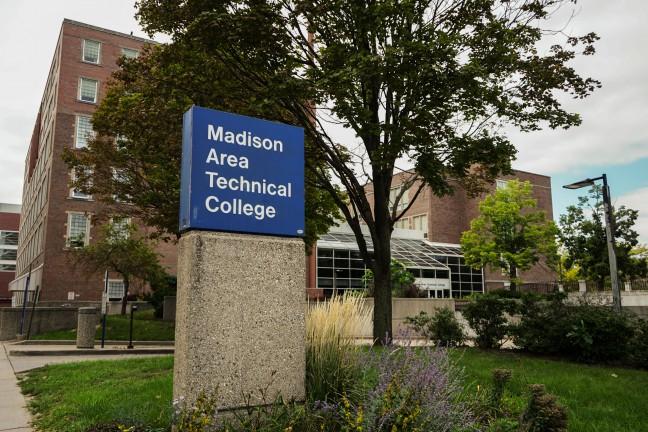Student rights are under attack. That's right, I said it.
Dean of Students Lori Berquam's recent comments on student activism indicate that either she is willfully ignorant of student organizing around issues affecting this campus or she would prefer to divert attention away from campuswide activism completely.
Either conclusion has unsettling implications, though I'm glad she got the conversation started.
Ms. Berquam declared in her Friday letter to the editor ("Dean of students calls for activism," Sept. 21), "What I want most for all members of our community is for people to feel empowered to speak up for what they believe in." This is an encouraging message. However, this statement begs the question: Does the dean of students want students to feel empowered, or does she want us to be empowered?
Shared governance, outlined in Wisconsin state statute 36.09(5), is one of the most essential parts of student empowerment at the University of Wisconsin. This statute not only guarantees students a place at the table in university decisions, but also gives us the "primary responsibility for the formulation and review of policies concerning student life, services, and interests." Importantly, it also gives us the responsibility of allocating segregated fees.
The current segregated fee system is one of the most important tools that students have to fulfill the Wisconsin experience. By having control of segregated fees, we can promote student activism, speech, and the leadership and service learning activities Ms. Berquam says she wants every student to take part in.
Currently, the allocable portion of segregated fees, which ASM controls, is one of the most closely scrutinized budgets at this university. Among other things, these allocable segregated fees fund student organizations. These student organizations then use our segregated fees to provide the many services we take advantage of at UW. Right now, ASM has policies in place to cut funding for student organizations or deny funding altogether if these groups cannot prove the merit and worth of their programs. ASM has proven itself capable of managing our segregated fees: Last year, the allocable segregated fee budget decreased by 26 percent — roughly $1 million. At the same time, non-allocable segregated fees, controlled by Chancellor John Wiley and the administration, increased by 23 percent — roughly $5 million.
I find it ironic that at the same time Ms. Berquam is stumping for student activism, the Offices of the Dean of Students was quick to side with Mr. Wiley last spring in the controversy over allocable segregated fees funding rent for student organizations with off-campus offices. Students were shut down despite the fact that there is no law or policy prohibiting use of segregated fees in such a manner.
As a result of the controversy between students and the chancellor last spring, the UW Board of Regents formed the Segregated Fee Policy Review Committee, to which Ms. Berquam was appointed. Sadly, the document currently being considered by the committee takes power away from students rather than affirming the current state of student rights.
I agree with Ms. Berquam that "solid" guidelines must be set for the allocation of segregated fees ("Get up, stand up," Sept. 17). However, these solid guidelines must meet the following criteria to maintain our student rights at the University of Wisconsin:
First, there should be no new restrictions imposed by the administration on what segregated fees can be used to fund. This will ensure that student organizations can maintain the same level of services and opportunities they do now.
Second, unlike last spring, the students' recommendation for segregated fee allocation should only be rejected or amended if it is in violation of the law or existing university policy.
Third, there should be increased opportunities for the campus administration and student government to discuss segregated fee allocations before they are finalized.
Finally, there should be increased student involvement in the non-allocable segregated fee process. Student Services Finance Committee decreased spending on allocable segregated fees by about $1 million in the last year, but the administration increased non-allocable spending by approximately $5 million with minimal student input. Non-allocable segregated fees are student money that fund student services. It is senseless to exclude students from having a meaningful say in this process.
A new segregated fee policy that does any less than meet these criteria sets a precedent to grind away at student rights whenever a conflict arises between the students and the administration. We as students can't afford to let this happen. Unless her recent support of student empowerment is all talk, Ms. Berquam seems as if she might become a strong ally for students.
Ultimately, the test of Ms. Berquam's sincerity on student empowerment will be in the coming weeks as a member of the Segregated Fee Policy Review Committee. Ms. Berquam has the ability to uphold student rights, or she can vote to undermine them. Ms. Berquam, the students are watching.
Rachel Butler ([email protected]) is a junior majoring in political science. She is also the chair of the ASM Student Rights Committee.







